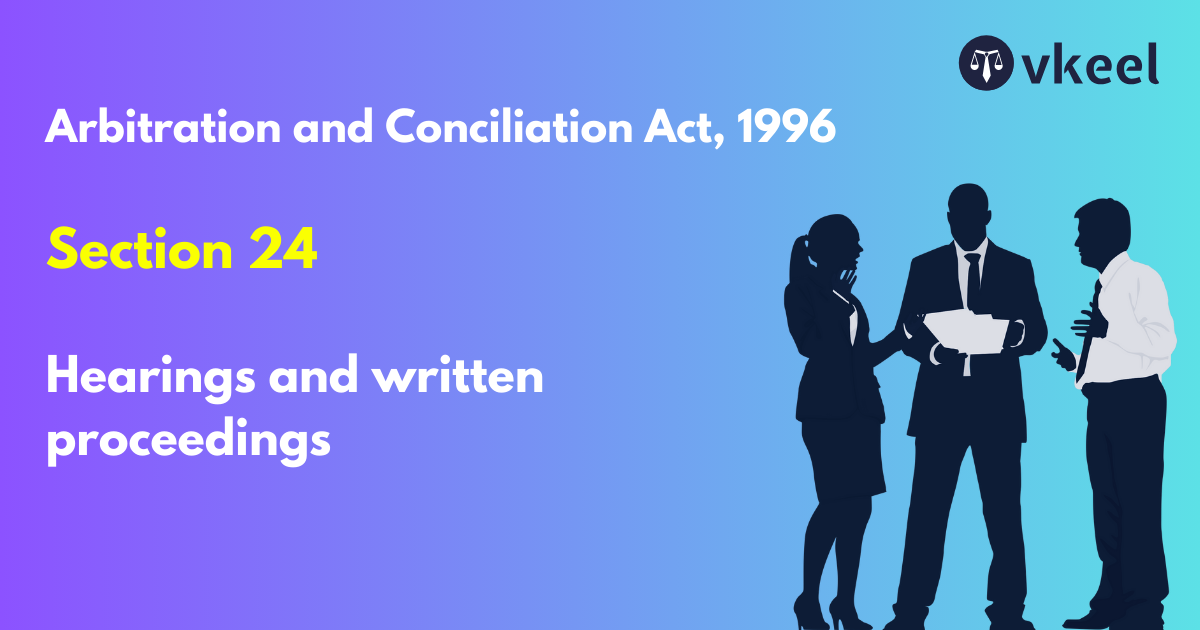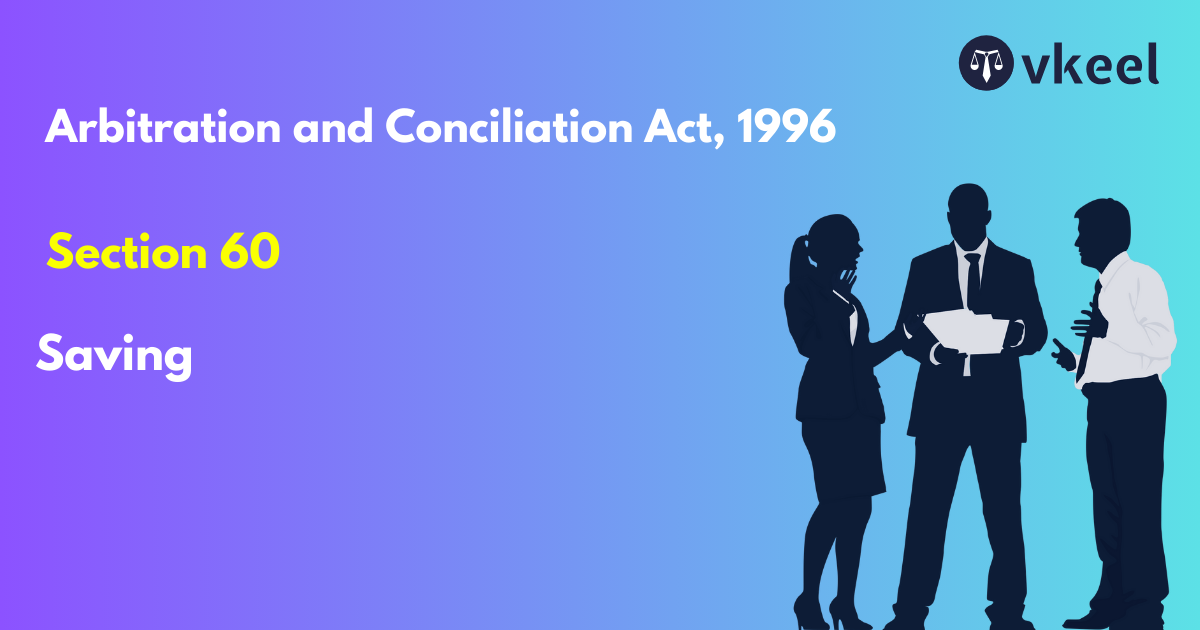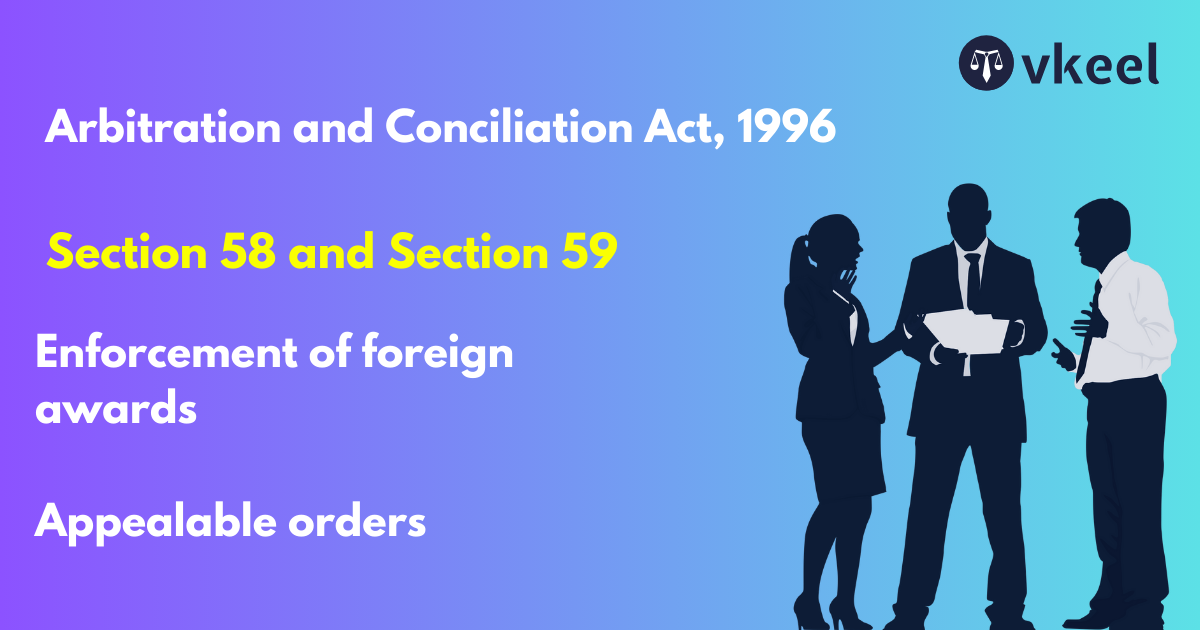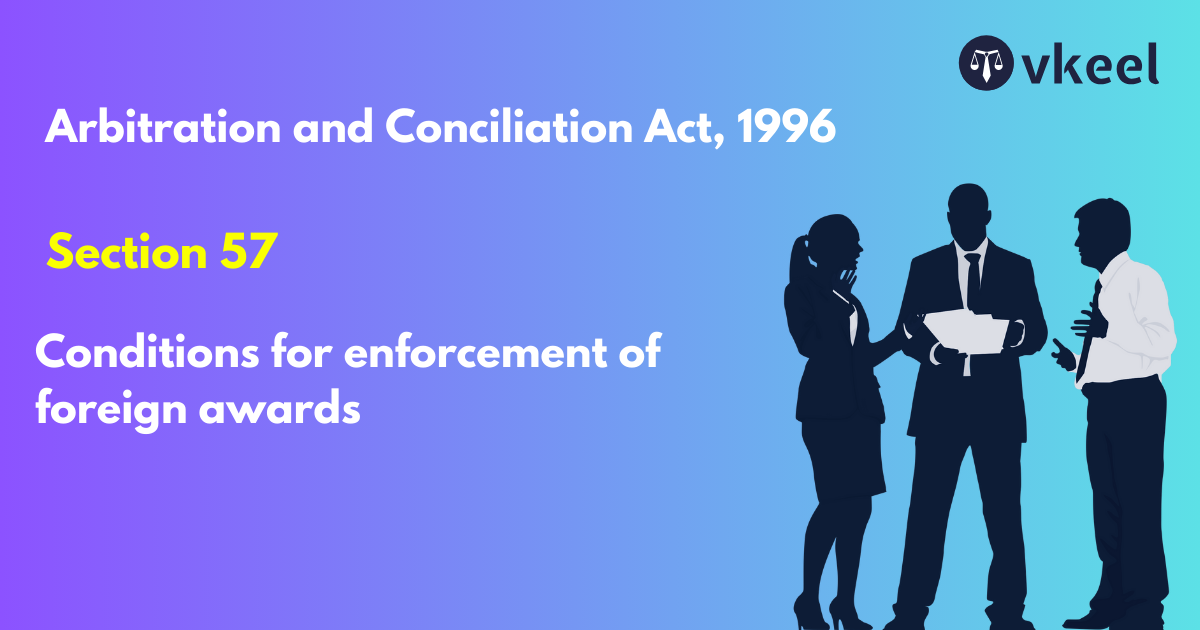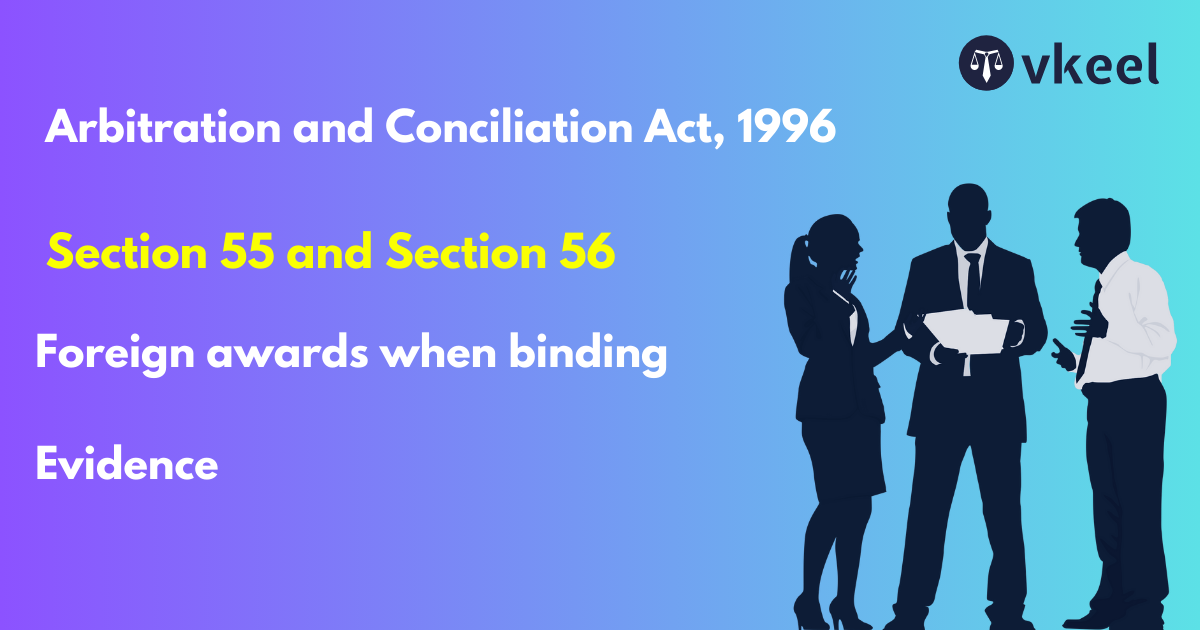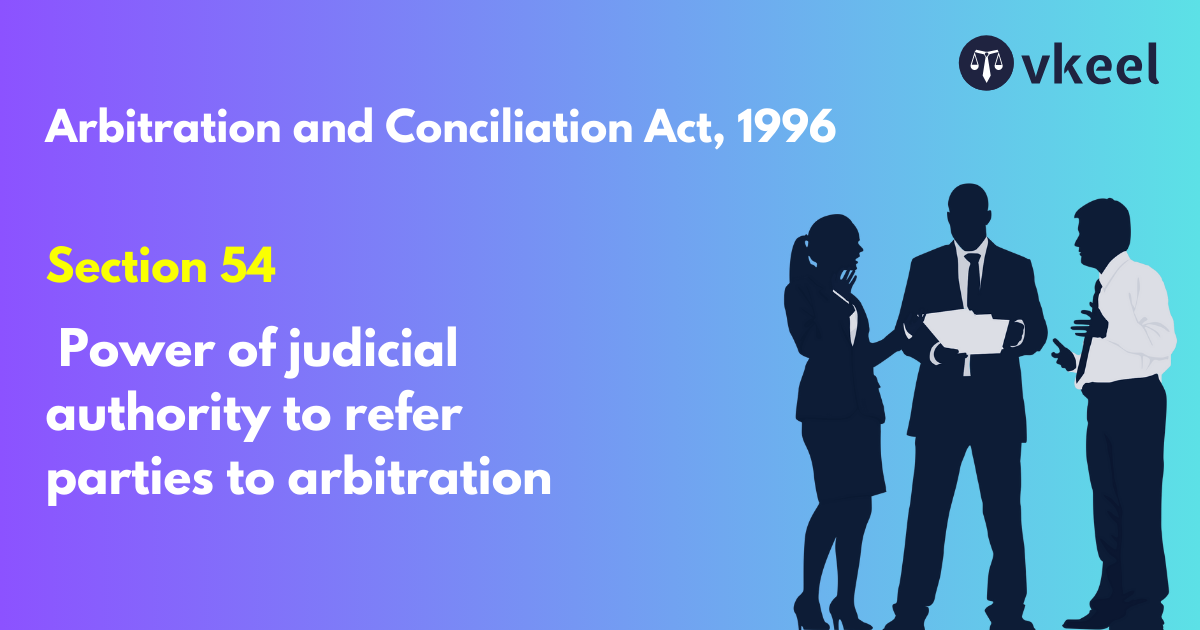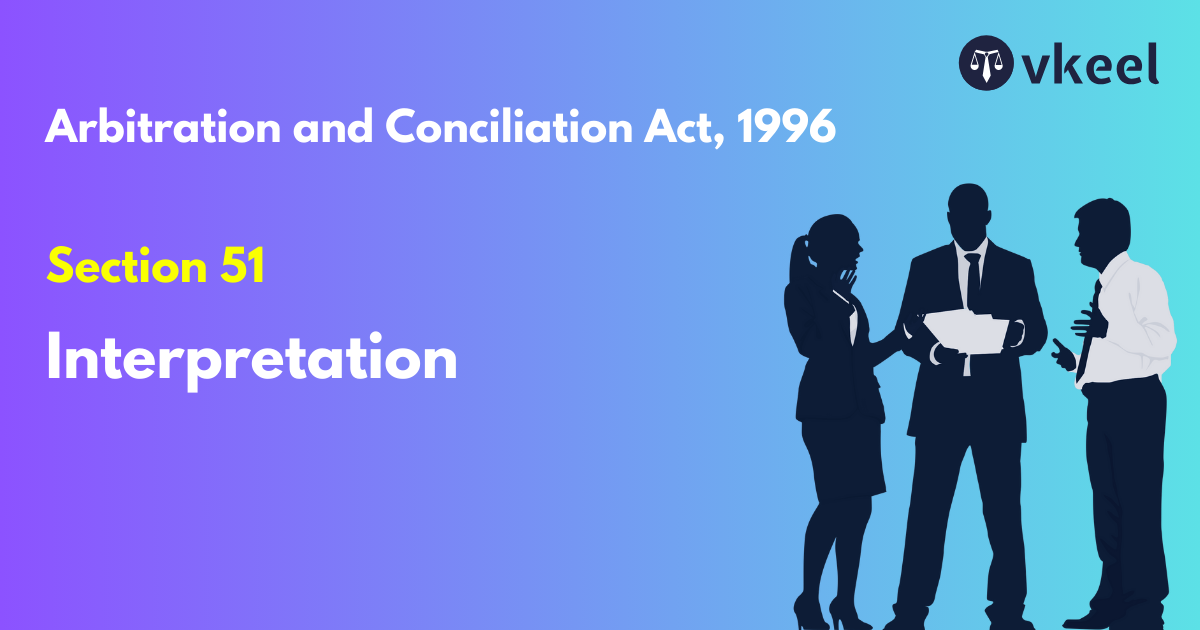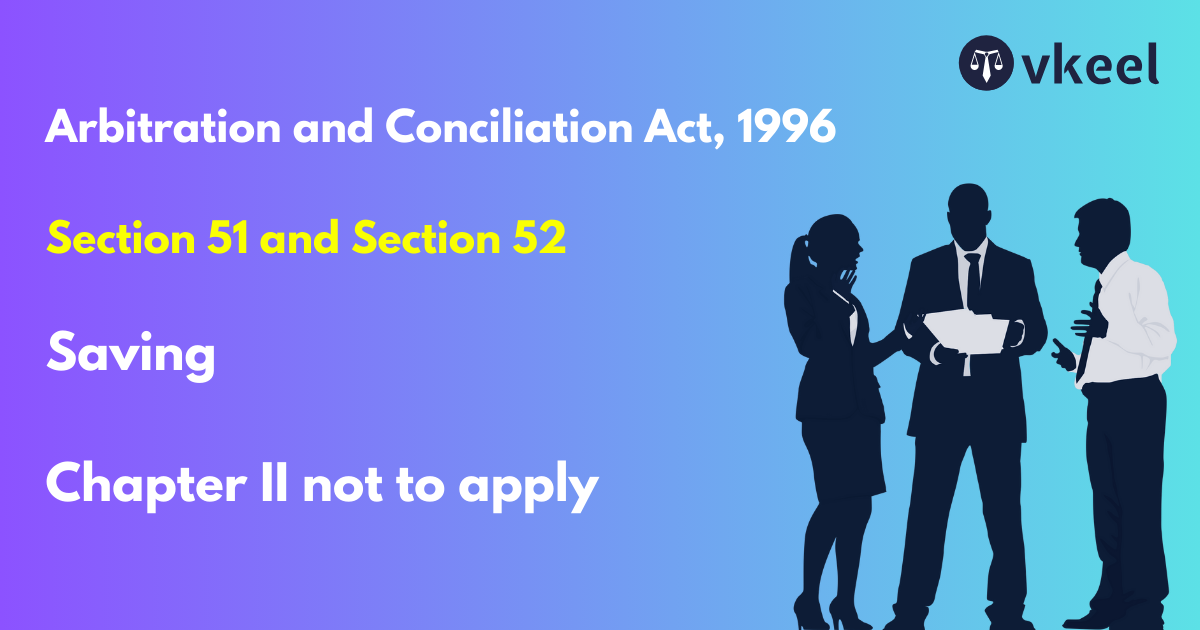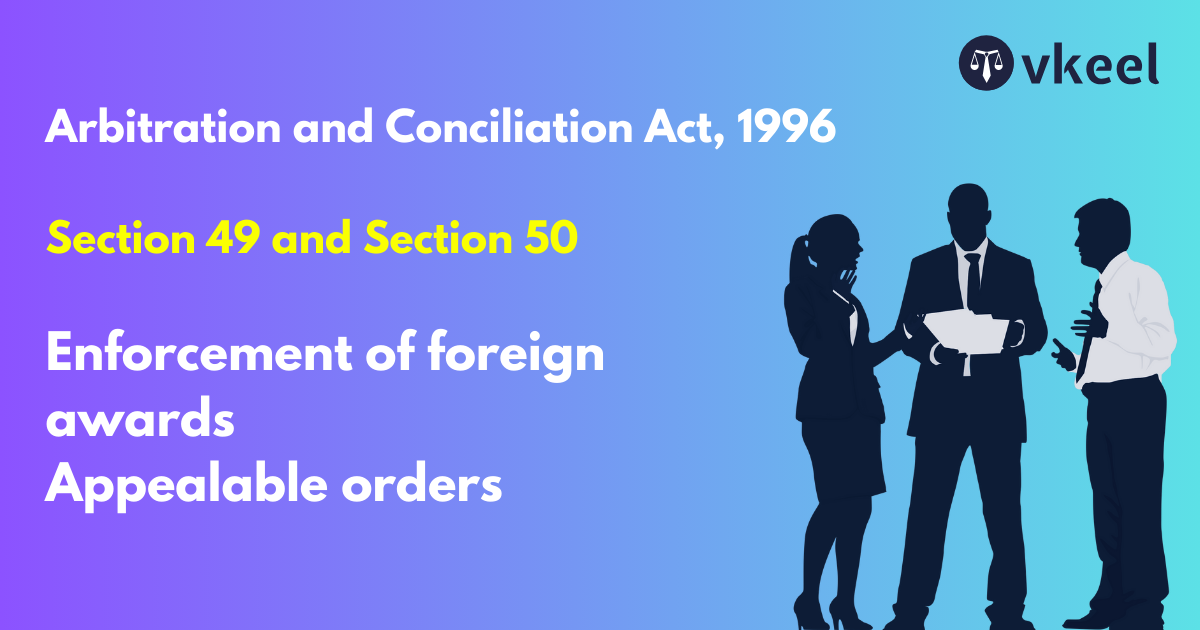Section: 24 of Arbitration and conciliation act, 1996
By Nivedita Dhiman
Table of Contents
Introduction of Section 24
Section 24 provides that if the parties before the arbitral award seek to lead oral evidence it must be granted as the expression is “shall hold oral hearing” at the request of the parties. This provision expresses a legislative preference for the grant of oral hearings at the request of either party. Section 24 helps with the framework for conducting hearings in the process of arbitration. This section plays a crucial rule as it balances the need for flexibility in arbitration process by ensuring that the proceedings are conducted in a very fair manner.
Section 24 of arbitration and conciliation act
Hearings and written proceedings
(1) Unless otherwise agreed by the parties, the arbitral tribunal shall decide whether to hold oral hearings for the presentation of evidence or for oral argument, or whether the proceedings shall be conducted on the basis of documents and other materials:
Provided that the arbitral tribunal shall hold oral hearings, at an appropriate stage of the proceedings, on a request by a party, unless the parties have agreed that no oral hearing shall be held:
1[Provided further that the arbitral tribunal shall, as far as possible, hold oral hearings for the presentation of evidence or for oral argument on day-to-day basis, and not grant any adjournments unless sufficient cause is made out, and may impose costs including exemplary costs on the party seeking adjournment without any sufficient cause.]
(2) The parties shall be given sufficient advance notice of any hearing and of any meeting of the arbitral tribunal for the purposes of inspection of documents, goods or other property.
(3) All statements, documents or other information supplied to, or applications made to the arbitral tribunal by one party shall be communicated to the other party, and any expert report or evidentiary document on which the arbitral tribunal may rely in making its decision shall be communicated to the parties.
Landmark Judgements of Section 24
MMTC Ltd vs Anglo American Metallurgical Coal Pty. Ltd, 2015
It would be open to an arbitrator to elicit as much from the witness as is relevant for issues between the parties. It is not unusual for members of arbitral tribunal themselves to put questions to the witnesses. Questions by arbitrators should be seen as a welcome intervention so that issues between the parties get further clarified. Of course, if there is a perception that the arbitral tribunal has gone out of the way in putting questions to a witness only with a view to helping to one of the parties to the arbitration that will certainly be cause of concern.
Gangotri Enterprises Ltd vs NTPC Tamil Nadu Energy Co Ltd, 2017
Where the petitioner took an abnormally long time of more than 2 years and still did not file claim statement despite having been granted six extensions of time for filing the same, the arbitrator cannot be expected to wait endlessly for the petitioner to do the needful. One day he has to close the right of the petitioner, aggrieved by the order, challenged the said order of the arbitrator.
R Narayanan vs India Info Securities Pvt Ltd, 2014
This section lays down the procedure to be adopted by the arbitral tribunal. It also requires the arbitral tribunal to give sufficient advance notice of any hearing, for the purpose of inspection of documents, goods or other properties. where the petitioner was collecting evidence, to the knowledge of the arbitrator, the arbitrator closed the proceedings and passed the award, it was held that the arbitrator should have put the petitioner to notice that he was closing the proceedings and thus the award was bad in law.
Faze Three Exports Ltd vs Pankaj Trading Co, 2004
Where the petitioner moved on application for being represented by an advocate and and permission was declined by the arbitrator on the ground that proceedings could be delayed if a party is allowed to be represented by an advocate amounts to denial of opportunity of fair hearing. It was further held that the arbitrator has np authority to prevent a party to be represented through an advocate unless parties have agreed otherwise.
Sulaikha Clay Mines vs Alpha Clays, 2005
Once it is decided that oral hearings would be held, parties should be given sufficient notice of hearing and of any meeting of the tribunal for the purpose of infection of documents, book or other property. Hearing of one party in the absence of the other violates the principle of natural justice.
Conclusion
The above-mentioned section of the arbitration and conciliation act, 1996 gives the arbitral tribunal this right to decide if it feels to hold oral hearings or rely on submitted documents. This provision ensures transparency by following the principles and brings effectiveness in the system.
Disclaimer:
The information provided in the article is for general informational purposes only, and is not intended to constitute legal advice or to be relied upon as a substitute for legal advice. Furthermore, any information contained in the article is not guaranteed to be current, complete or accurate. If you require legal advice or representation, you should contact an attorney or law firm directly. We are not responsible for any damages resulting from any reliance on the content of this website.

